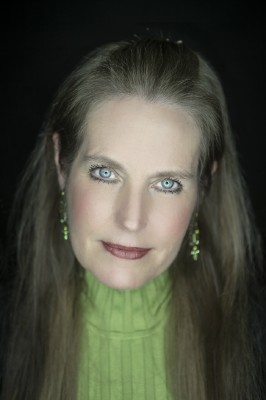My differences were not tolerated in silence, not by my parents, my brother (who was adopted two years after me), nor certain members of the community. I was called "kooky" and "defective;" I was told I would go to hell for not believing in Christ. I always felt out of place, a pair of spiked heels among a sea of Top-siders.
Mom and Dad were disciples of the "blank-slate" theory. In other words, they did not think genetic material could affect a child's personality, interests, or beliefs, a view that was common in those days. They assumed that, with the right upbringing, an adopted child could be programmed into a replica of her parents--in this case, an obedient Christian socialite who would marry a proper, old-money gentleman.
Today, there is astounding new research on the "nature versus nurture" debate. Experts believe that biology plays a significant role in determining what a person thinks, what skills she possesses, what interests she has, and even what career she may enjoy. It is called having a "biological predisposition" for something. Of course, external factors also help shape a person, but they are deemed less powerful than previously thought. Popular books, such as The Nature Assumption, argue that parents have almost no impact whatsoever on a child's development.
Steven Pinker, cognitive psychologist and author of The Blank Slate, agrees that biology affects personality. He writes, "Though no one has identified genes for morality, there is circumstantial evidence that they exist."
What's more, research from the University of Delaware indicates that intelligence is up to 90 percent genetically determined, and many other factors or traits also have significant levels of heritability, such as religiosity, social attitude, hobbies, interests, self-esteem, criminal proclivities, worldview, musical skills, sexual orientation, and socioeconomic trajectory. The Delaware researchers state, "Longitudinal studies of adoptive families show that as adoptive children grow up they become less like their adoptive parents (the correlation drops to zero) and more like the biological parents and siblings they may never have seen."
This was my experience as well. In my mid-20s, I tracked down my natural parents--not an easy feat because records in Georgia were closed. I also made contact with my grandmother, aunts, cousins, and eventually half-siblings. To my astonishment, I found closets full of spiked heels and not a single pair of Top-siders.
There were numerous links between me and my birth mom. She was an environmentalist who left Atlanta for ideological reasons; she could not tolerate the prejudice of the South in the 1960s.
As for our religious similarities, both of us had been initially drawn to Reform Judaism because it was malleable, nonjudgmental, and welcoming. It was nothing like the blindly-accept-the-word-of-Jesus form of Christianity that we had been force-fed as children. Although my birth mom cannot remember her first Shabbat service, I remember mine. A congregant raised his hand in the middle of the sermon and offered his opinion, which deviated from that of the rabbi. He was permitted to explain. The rabbi later told me, "Reform Judaism is not rigid. We welcome disagreement." At that moment, I knew I wanted to convert.
Although my natural grandmother, who died a few years ago, was not Jewish, she was the essence of glitz. She and I enjoyed the same bizarre hobby: purchasing brand new, department store clothes and adorning them with sequins and beads. Our garage-sized, color-coordinated closets looked virtually identical, and we owned much of the same furnishings, including a rare, carved, antique desk that I have never seen elsewhere.
(Note: You can view every article as one long page if you sign up as an Advocate Member, or higher).





